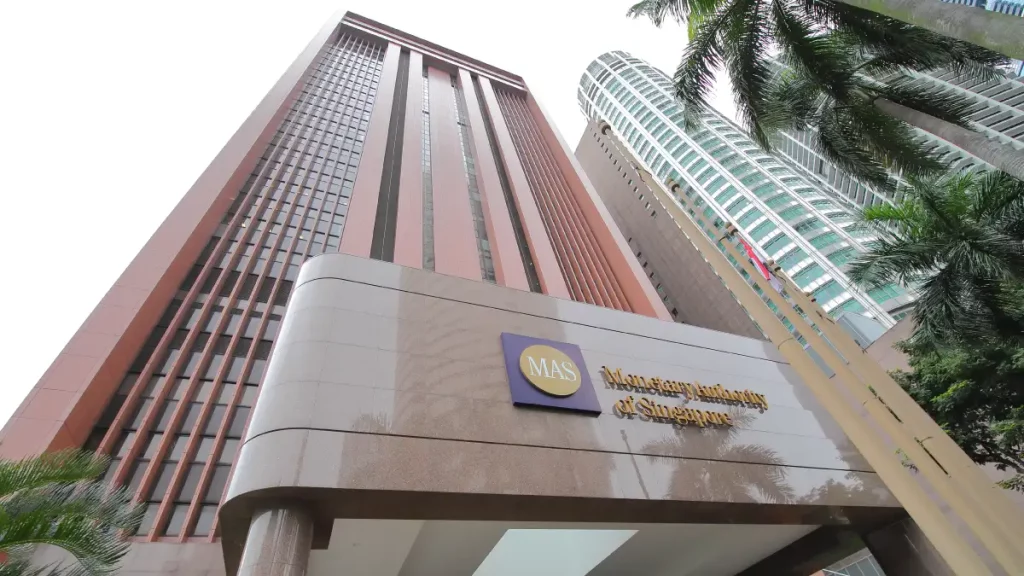Singapore is predicted to surge its taxes in 2022 and is enhancing pressure on the central bank to stiffen fiscal policy as the Southeast Asian country seeks to control swelling inflation pressures.
The Monetary Authority of Singapore (MAS), which utilizes exchange rates as its primary policy tool, will likely focus on allowing the local currency to escalate further at its subsequent policy meeting in April 2022, according to data compiled by Bloomberg analysts’ estimates. Consolidating the Singapore dollar would flatten the impact of surging import costs.
The trade-dependent city-state has already highlighted its concern over inflation and the Monetary Authority of Singapore unexpectedly strengthened policy in October 2021. A surge in the Goods and Services Tax estimated as soon as April 2022 is maturing outlooks that the central bank will act again to assist offset the resultant surge in prices.
Central banks across the world are taking a maturing aggressive deportment towards contradicting surging prices, with the US Federal Reserve demonstrating a more hawkish swivel toward policy regularization in 2022.
Senior economist at Maybank Kim Eng Research Pte., Chua Hak Bin, stated that a more aggressive move is essential if inflation continues to astonish on the upside and the GST surge manifests. Hak Bin estimated a 50-basis point surge in the gradient of the MAS currency band.
Analysts at Goldman Sachs Group Inc., Citigroup Inc., and Nomura Holdings Inc. witness predictions for a hike close to approximately 100 basis points.
Adding to the increasing slope of the currency bank – which facilitates a steady solidification – analysts at Barclays Plc suppose the entire bank to be re-centred increasingly by 100-150 basis points. A comprehensive pass-through of GST into fundamental inflation could necessitate an upward re-centring of 100-200 basis points, as per Citigroup expectations.
An off-cycle strengthening before the Monetary Authority of Singapore’s scheduled meeting in April 2022 cannot be ruled out, specifically, if global central banks begin to tighten faster than estimated, macro strategist at TD Securities Inc., Alex Loo, stated in a note last week.
Astonishing History of Singapore
Monetary Authority of Singapore has a history of astonishing market prospects, including easing policy in 2016 to counterbalance a slowdown in global trade and increasing the slope of its currency bank to some extent in October 2021 amidst apprehensions regarding surging price pressures. Whilst the MAS does not broadcast the slope of the currency gradient, numerous economists estimate it at 0.5%.
Therein remains the upside risks to inflation if GST surges to 9% from 7%, Nomura analysts including Euben Paracuelles mentioned in a report last week. Whilst a 100-basis point surge is most credible, the MAS may enhance the slope of appreciation further if there are prolonged signs that local inflationary pressures may be expanding, they stated.
The Singaporean dollar has lost around 0.4% against the dollar since the October 2021 decision, chiefly steered by consolidation in the US currency on the back of Fed narrowing expectations.
Economists surveyed by Bloomberg estimate depict that inflation augmented 2.1% in 2021, the quickest since 2013, and expect it to further surge by 1.9% in 2022. The MAS has predicted a surge of 1.5% to 2.5% in 2022, with its principal inflation measure acquiring 1% to 2%.
At the dusk of 2021, Prime Minister Lee Hsien Loong gesticulated that a surge in the GST would be encompassed in the February 2022 monetary budget declaration, with the nation seeking to reinforce its balance sheets as it arises from the worst of the pandemic. Indranee Rajah, Second Minister for Finance, stated in the parliament on Tuesday that a surge cannot be put off forever and would depend on comprehensive economic conditions.
